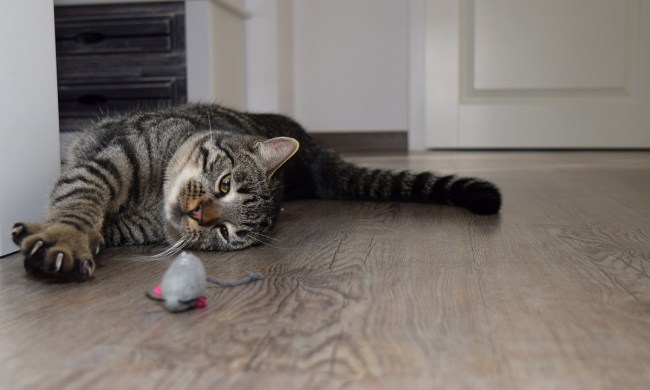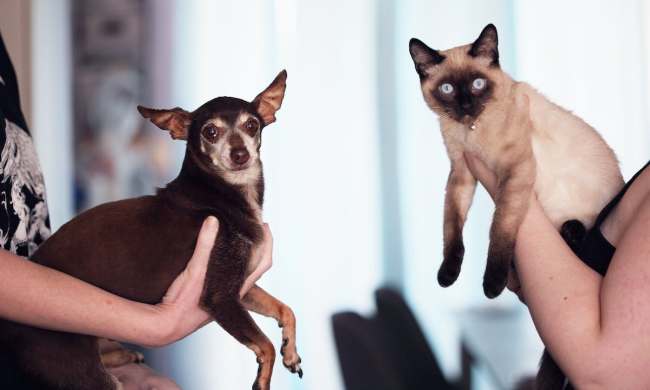What’s better than a movie night with your best friend? How about an at-home one with your furry friend curled up on your lap? You may also have a bowl of popcorn on your lap. What happens if your cat snags a piece? Is popcorn toxic to cats? Can cats have popcorn? You’ll want to understand the answers to these questions, especially if popcorn is a staple in your home. Some foods, such as onions and chocolate, aren’t safe for cats.
What about popcorn? Beyond being a crunchy, quintessential movie night snack, popcorn is surprisingly healthy for humans (especially sans added salt and butter). Popcorn is a source of B1, B3, and B6 vitamins and minerals, such as zinc and potassium. Cats can benefit from these? Yes, but their regular food contains what they need to thrive. Can cats have popcorn anyway? Unlike chocolate (a no-go), the answer is complicated.
Can cats have popcorn?

The ASPCA doesn’t list popcorn as toxic for cats. You’re likely OK if your cat snagged some out of your hand like an adorable but pesky little thief or you accidentally dropped some on the floor. However, you’ll want to avoid intentionally letting your cat eat popcorn. While this delicious snack is a good one for humans, popcorn poses some health hazards for feline friends, such as:
- Disease risk. Popcorn often contains butter and salt. These add-ons aren’t great for humans, raising the risk of issues like heart and kidney disease (but enhance the taste). Ditto for cats.
- Popcorn also has excess calories. Cats that regularly consume too many calories are at a higher risk for weight issues like obesity.
- Popcorn has grains. A feline’s digestive system is distinct from ours (we’re omnivores), and their bodies are designed to get nutrients from a particular source. Cats are obligate carnivores, meaning they get their nutrients from animal flesh. They don’t need carbs. While a grain here and there is generally OK, too much can cause issues, including tummy aches.
- PFOA and PFAS. Many packaged popcorns contain “forever chemicals.” Perfluorooctanoic acid (PFOA) is a type of per- and polyfluoroalkyl substance (PFAS). Scientists are still learning about these chemicals’ effects on cats and humans. However, research, including from the AVMA, indicates that these chemicals may have endocrine-disrupting effects.
- Choking. Cats can choke on the kernel. If your cat begins to choke on popcorn, seek emergency care immediately.
Closing thoughts

Popcorn isn’t considered toxic for cats, but the snack is unnecessary and can pose health risks, including upping the chances of developing digestive issues or choking. As carnivores, cats don’t need grains, which popcorn has. The butter and salt on many popcorn pieces aren’t great for human or kitty health, and the snack can contribute to excess caloric intake (and unnecessary weight gain).
Your best bet is to avoid giving your cat popcorn and stick to a regular diet of food and treats specifically for cats. Speak with your pet’s vet before letting them eat any human foods, and if you’re concerned about your cat’s health after they eat something, like popcorn. Increased thirst, lethargy, and decreased appetite may indicate your cat is severely reacting to something they ate. Quick care can increase your odds of the best outcomes.




